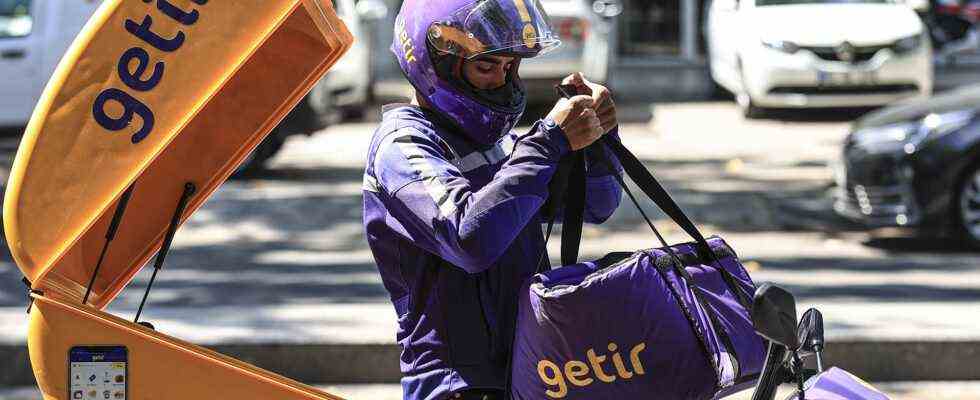Status: 13.09.2021 14:39
They are called gorillas, picnic or crispy. The number of food delivery services continues to grow. The Turkish newcomer Getir wants to expand its business in Germany quickly.
The number of foreign food delivery services entering the German market continues to grow. Now that the Dutch supplier Picnic has been offering its services in the Rhineland and the Czech company Rohlik has been putting pressure on the supermarkets in Munich under the name Knuspr, the Turkish supplier Getir is now announcing expansion plans in several German cities.
Company boss Nazim Salur told the “Welt” that in the current year, in addition to Berlin, where Getir started two months ago, six other German cities are to be added: first in October Hamburg, then Cologne, Dusseldorf, Dortmund and Essen and one city in Southern Germany – Stuttgart, Nuremberg or Munich could be considered here. Getir is looking for locations for distribution centers there. “For the next two years I am assuming 10,000 jobs in Germany,” said Salur. Despite the high speed, the company needs sufficient regional market penetration right from the start: “We want to reach at least half of the population in the cities in which we are competing from the start.”
Most valuable start-up in Turkey
The company founded by Salur in 2015 in Istanbul is still hardly known in Germany, but according to “Welt” it is considered the most valuable startup in Turkey with a company value of 6.8 billion euros. Getir (in German: “Bring”) also delivers food from restaurants and bakeries there. The best-known donors include US investors Sequoia Capital and Silver Lake from Silicon Valley.
The purple e-bikes and scooters of Getir-Boten have also been bringing groceries to customers in London, Paris and Amsterdam for a few months now. Kagan Sümer, the founder of the German delivery service Gorillas, said he was once inspired by Getir. Now the role model is competing with him. The boom was fueled by the pandemic when people were asked to stay at home, more and more households ordered their groceries from delivery services and the companies had previously unimagined growth rates.
Hourly wage of 10.50 euros
However, the precarious working conditions and modest wages quickly became the focus of a broader public, as the recent strike by drivers at the Gorillas delivery service has shown. Getir boss Salur said of the controversial working conditions that his company pays an initial hourly wage of 10.50 euros. The messengers would have the choice between permanent, permanent full-time positions and temporary or part-time jobs. In addition, relaxation rooms and toilets would be made available at the distribution points. The physical strain is kept within limits by using e-mopeds. Also, no messenger is urged to be in excessive hurry.
And there is another difference to the competition: the Getir couriers do not carry their deliveries in a backpack on their back, but in a box attached to the two-wheelers. Salur says there has never been a Getir courier carrying deliveries on his back since the company was founded. “That may sound like a small thing, but it is important. If someone makes 20 deliveries a day on their back, their back hurts afterwards.”
Only the market leader earns money
Nevertheless, Getir also has the ambition to deliver the groceries to the customers in less than 15 minutes after ordering. There are a number of delivery services in Germany, but so far many of the services are only available in larger cities. The delivery services operate from a tight network of centrally located warehouses that only exist in the inner cities of large cities. According to experts, not all providers will survive the current, tough cutthroat competition. Because mostly only the market leader can earn money with his services. The other companies would be taken over or would have to withdraw from the market.

